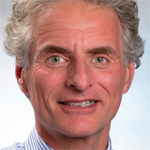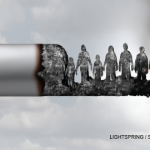Sometimes, having choices can be problematic. In his book, The Paradox of Choice: Why More Is Less, psychologist Barry Schwartz, professor of social theory and social action at Swarthmore College in Pennsylvania, takes aim at a central tenet of Western societies—freedom of choice. He argues that more choice can be debilitating and makes us more dissatisfied.13 When perusing the multitude of retirement plan options that some employers offer, studies have shown that the more fund options that are offered, the fewer the people who participate. In fact, the highest participation rates are among those employees who are automatically enrolled in their company’s standard plan unless they actively choose not to.14 The rheumatology analogy to this conundrum is when our patients become anxious when offered to choose among the many biological therapies. With over a dozen offerings on the market and more in development, the freedom of choice can be paralyzing.
Still, I doubt that any of us would ever want to return to the days when the only choices we could offer patients were two formulations of gold salts and a handful of harmful non-steroidal anti-inflammatory drugs. To quote Dr. Emile Duclaux, a physician disciple of Dr. Louis Pasteur: “It is because science is sure of nothing that it is always advancing.”15 Vive le paradoxe!
 Simon M. Helfgott, MD, is associate professor of medicine in the Division of Rheumatology, Immunology and Allergy at Harvard Medical School in Boston.
Simon M. Helfgott, MD, is associate professor of medicine in the Division of Rheumatology, Immunology and Allergy at Harvard Medical School in Boston.
References
- Branswell H. Hospitals installed more sinks to stop infections. The sinks can make the problem worse. STAT. 2016 Oct 25.
- Hopman J, Bos R, Vos J, et al. Reduced rate of MDROs after introducing ‘water-free patient care’ on a large intensive care unit in the Netherlands. Antimicrob Resist Infect Control. 2015;4(Suppl 1):O40.
- Lunney PC, Leong RWL. Review article: Ulcerative colitis, smoking and nicotine therapy. Aliment Pharmacol Ther. 2012 Dec:36(11–12):997–1008.
- Gupta T, Kolte D, Khera S, et al. Smoker’s paradox in patients with ST segment elevation myocardial infarction undergoing primary percutaneous coronary intervention. J Am Heart Assoc. 2016 Apr 22;5(4): pii: e003370.
- Ferrieres J. The French paradox. Lessons for other countries. Heart. 2004 Jan;90(1):107–111.
- Ferdman RA. Where people around the world eat the most sugar and fat. The Washington Post. 2015 Feb 5.
- Rozin P, Fischler C, Imada S, et al. Attitudes to food and the role of food in life in the U.S.A., Japan, Flemish Belgium and France: Possible implications for the diet-health debate. Appetite. 1999;33:163–180.
- Gjonca A, Bobak M. Albanian paradox, another example of protective effect of Mediterranean lifestyle? Lancet. 1997 Dec 20–27;350(9094):1815–1817.
- Sanger-Katz M. Can Cuba escape poverty but stay healthy? The New York Times. 2014 Dec 18.
- Blue L. The ethnic health advantage. Scientific American. 2011 Oct 1.
- Blue L, Fenelon A. Explaining low mortality among US immigrants relative to native-born Americans: The role of smoking. Int J Epidemiol. 2011 Jun;40(3):786–793.
- Solomon DH, Johnston SS, Boytsov NN, et al. Osteoporosis medication use after hip fracture in U.S. patients between 2002 and 2011. J Bone Miner Res. 2014 Sep;29(9):1929–1937.
- Schwartz B. The Paradox of Choice. Why more is less. Harper Perennial, New York 2004.
- Tugend A. Too many choices: A problem that can paralyze. The New York Times. 2010 Feb 26.
- Reviews in Computational Chemistry. Vol. 18. Lipkowitz KB, Boyd DB, eds. John Wiley and Sons. Hoboken, N.J., 2002.


